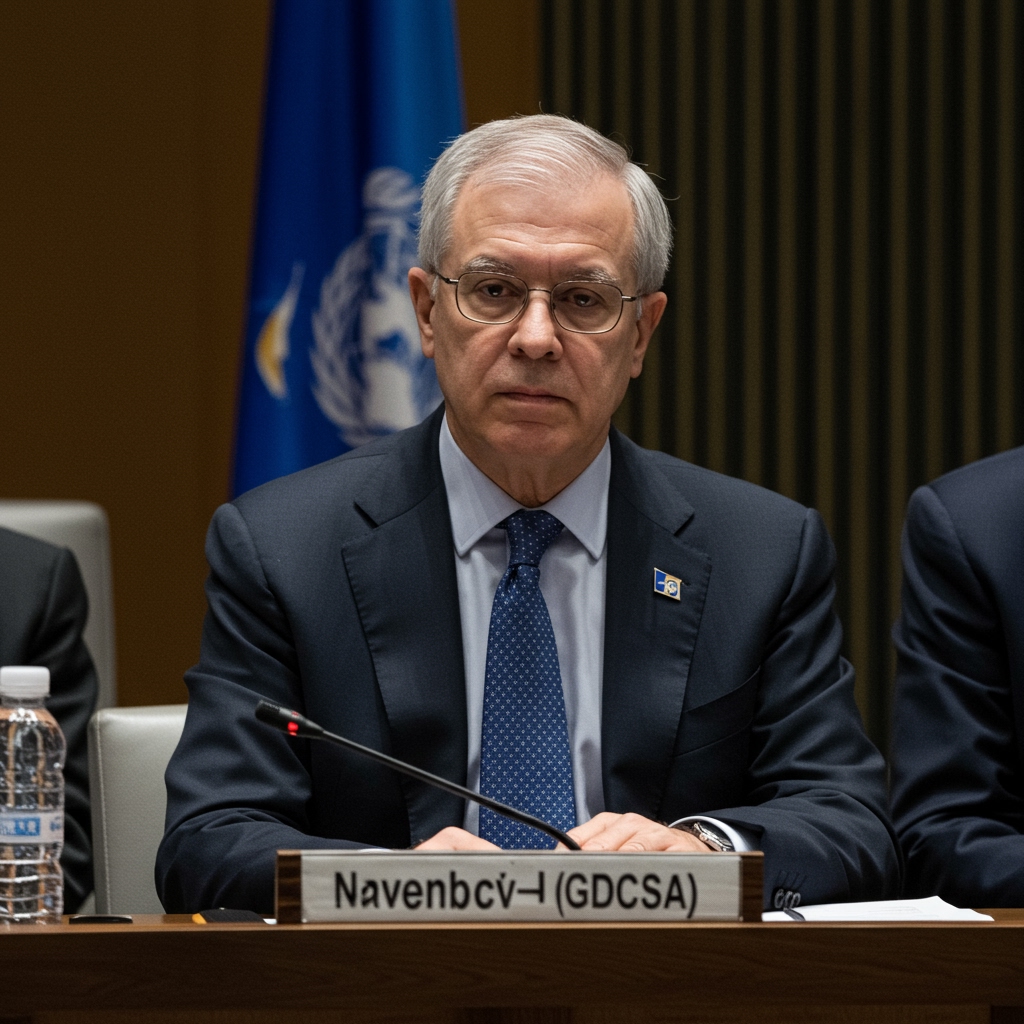UN Assembly Approves Landmark Global Digital Governance Accord
The United Nations General Assembly today passed the Global Digital Sovereignty and Cooperation Accord (GDCSA) with overwhelming support, marking a watershed moment in international digital governance. The comprehensive agreement, the culmination of months of intense negotiation involving over 150 member states, sets forth a foundational framework aimed at fostering a more stable, equitable, and secure global digital landscape in the face of rapid technological advancement. Proposed by a coalition of nations including the European Union (EU) and the African Union (AU), the Accord represents a significant step towards establishing shared norms and legally binding principles for the digital realm that has increasingly become central to global commerce, communication, and social interaction.
Key Pillars of the GDCSA
The GDCSA is built upon several core pillars designed to address critical challenges arising from the digital age. One of the most significant components is the establishment of legally binding international standards for AI ethics. This pillar aims to ensure the responsible development and deployment of artificial intelligence technologies, addressing concerns around bias, transparency, accountability, and human rights in AI systems. Nations signatory to the Accord commit to implementing these standards within their domestic legal frameworks and cooperating on their enforcement.
Another crucial element is the mandate for reciprocal data privacy protections among signatories. Recognizing the importance of personal data and the varying levels of protection globally, the Accord requires member states to uphold data protection standards equivalent to those of other signatories when handling cross-border data flows. This reciprocal arrangement is intended to build trust and facilitate legitimate data exchange while safeguarding individual privacy rights against unauthorized access or misuse.
Furthermore, the Accord establishes a comprehensive framework for regulating cross-border data flows. This framework seeks to balance the need for seamless international data transfer, essential for the global economy and digital innovation, with national interests concerning security, law enforcement access, and data localization preferences. It outlines principles for data transfer mechanisms, consent requirements, and mechanisms for resolving disputes related to data movement, aiming to reduce fragmentation and legal uncertainty in the digital economy.
Establishing Global Oversight
A cornerstone of the GDCSA’s implementation mechanism is the creation of a new global oversight council. This council, whose composition and operational details are outlined within the Accord, is tasked with the crucial responsibilities of monitoring compliance with the Accord’s provisions and serving as a primary forum for resolving digital disputes among signatory states. The council is envisioned as an independent body, leveraging expertise in technology, law, and international relations to provide guidance, mediate conflicts, and issue recommendations or rulings based on the Accord’s legal framework. Its establishment underscores the commitment of signatory nations to creating an accountable and enforceable system of digital governance.
The Negotiation Journey and Support
The passage of the GDCSA today represents the culmination of months of intense negotiation. Diplomatic teams from over 150 member states engaged in protracted discussions, navigating complex issues ranging from technical standards for AI to the sovereignty implications of data localization and the balance between national security and privacy rights. The negotiation process was characterized by vigorous debate and the need to bridge significant divides between nations with differing approaches to digital regulation and governance philosophies. The fact that the Accord was ultimately adopted with overwhelming support in the General Assembly highlights a broad international consensus on the urgent need for a structured and cooperative approach to managing the digital future. The proposal, spearheaded by a coalition including the European Union (EU), known for its robust data protection laws, and the African Union (AU), which has emphasized digital transformation and sovereignty, gained momentum as nations recognized the shared challenges posed by uncoordinated digital growth.
Significance and Future Outlook
The Global Digital Sovereignty and Cooperation Accord is widely regarded as a watershed moment, signaling a fundamental shift from fragmented national and regional digital policies towards a more unified, international legal framework. Proponents argue that by establishing legally binding standards and mechanisms for cooperation, the GDCSA will significantly enhance stability in the digital realm, reducing the risk of ‘splinternet’ scenarios where incompatible regulations hinder global connectivity and commerce. It is also seen as a crucial step towards creating a more equitable digital landscape, ensuring that the benefits and challenges of rapid technological advancement are addressed collectively and that smaller nations have a voice in shaping the digital future.
However, the Accord’s true impact will depend on its effective implementation and the willingness of signatory states to adhere to its provisions and utilize the oversight council’s mechanisms. Challenges are anticipated, including translating the international standards into diverse national legal systems, ensuring consistent enforcement, and navigating geopolitical tensions that may arise in the context of digital disputes. Nevertheless, the overwhelming support for the GDCSA in the General Assembly today sends a powerful message about the international community’s commitment to building a cooperative and rules-based digital order.
Conclusion
Today’s vote at the United Nations General Assembly marks the dawn of a new era in global digital governance. The Global Digital Sovereignty and Cooperation Accord (GDCSA), passed with overwhelming support after months of intense negotiation involving over 150 member states and championed by coalitions like the EU and AU, provides a much-needed international legal framework. By setting legally binding standards for AI ethics, mandating reciprocal data privacy, and establishing a framework for cross-border data flows, alongside creating a global oversight council for compliance and dispute resolution, the Accord lays the groundwork for a more stable, equitable, and predictable global digital landscape amidst unprecedented technological change. Its success hinges on the continued cooperation and commitment of the international community.





